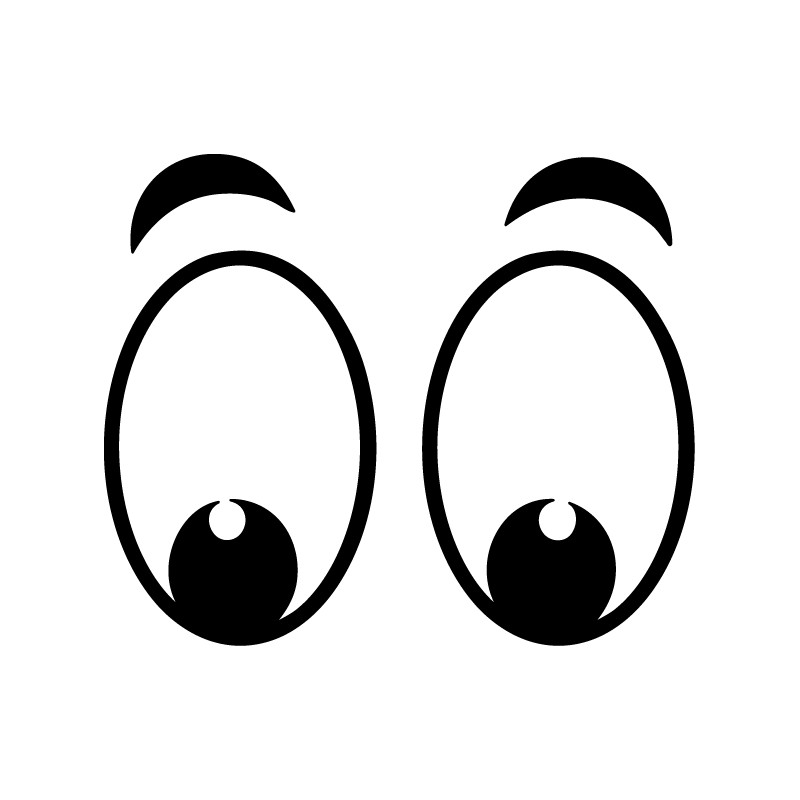Este es el blog de Inglés, donde podremos poner y ver todo lo que hagamos durante el curso. Desde las tareas a los juegos, o el día que fuimos de excursión...
jueves, 22 de diciembre de 2016
viernes, 16 de diciembre de 2016
miércoles, 14 de diciembre de 2016
CHRISTMAS SONGS (&º E.P )
CHRISTMAS SONGS
Here you have some Christmas songs to practise your listening skills and of course to enjoy singing.
Here you have some Christmas songs to practise your listening skills and of course to enjoy singing.
UNIT 3 RECIPES AND FOOD ( 6º E.P)
UNIT 3 RECIPES AND FOOD
VOCABULARY
coconuts, citrus fruit, coffee, salt, sugar, honey, olives, beans, rice and species.
QUESTIONS
VOCABULARY
coconuts, citrus fruit, coffee, salt, sugar, honey, olives, beans, rice and species.
QUESTIONS
Does Jamaica produce coconuts? - Yes, I think so - I'm not really sure - No, I don't think so GRAMMAR Countable nouns There is a banana There are some bananas There isn't a banana There aren't any bananas Is there a banana? Yes, there is / No, there isn't Are there any bananas? Yes, there are/ No, there aren't Uncountable nouns There is some sugar There isn't any sugar Is there any sugar? Yes, there is / No, there isn't YOU HAVE TO USE SOME AND ANY WITH COUNTABLE AND UNCOUNTABLE NOUNS. |
domingo, 4 de diciembre de 2016
domingo, 20 de noviembre de 2016
UNIT 2: A NEW PET ( 2º PRIMARY EDUCATION)
UNIT 2: A NEW PET
VOCABULARY
BIRD PUPPY


KITTEN HAMSTER


FISH LIZARD


RABBIT TURTLE


GAMES
Animals: Memory game con audio
Animals: Memory game
Animals: Game
Animals: At the Zoo
Animals: Crossword – Wild animals
VOCABULARY
BIRD PUPPY


KITTEN HAMSTER

FISH LIZARD


RABBIT TURTLE

GAMES
Animals: Memory game con audio
Animals: Memory game
Animals: Game
Animals: At the Zoo
Animals: Crossword – Wild animals
jueves, 17 de noviembre de 2016
UNIT 2:THE GINGERBREAD MAN (1º PRIMARY EDUCATION)
VOCABULARY
HEAD

EYES

MOUTH

NOSE

EARS
.gif)
ARMS
.jpg)
HANDS

LEGS

ACTIVITIES
Body parts
Body parts
Body parts
Body parts
Body parts
Body parts
Body parts
Body parts
miércoles, 16 de noviembre de 2016
UNIT 2: GEOGRAFICAL WONDERS (6º PRIMARY EDUCATION)
VOCABULARY
Volcano, Glacier, Cliff, waterfall, mountain range, cave, rainforest, desert, island, valley, landscape
GRAMMAR
My car is the biggest.
TWO SYLLABLES ENDING IN Y:
You have to change the "y" for "i" and add -est.
The + happy + est
EXAMPLE:
She is the happiest.
MORE THAN THREE SYLLABLES:
You have to add most before the adjective.
The + most + intelligent
EXAMPLE:
He is the most intelligent in my class.
Do these activities in your notebooks.
1- Make sentences like this:
Example:
Which is the highest mountain in the World?
Mount Everest is the highest mountain in the World.
1- The Nile / the longest river
2- The Sahara/the hottest desert
3- The Amazon/the widest river
4- The Pacific / the deepest ocean
5- The White shark/ the most dangerous shark
COMPARATIVES AND SUPERLATIVES
Al igual que en español, en inglés cuando queremos comparar dos cosas utilizamos los adjetivos y sus distintos grados: positivo, comparativo y superlativo.
- El grado positivo refiere la forma más simple:
A sunny day / Un día soleado
- El grado comparativo refiere una cualidad mayor de una cosa respecto de otra.
A better day / Un día mejor
- El grado superlativo refiere la cualidad en su mayor expresión:
Today is the best day of the year / Hoy es el mejor día del año
CLASES DE COMPARACIÓN
Se forma con el adjetivo intercalado entre la construcción "as...as" (tan...como) para frases afirmativas e interrogativas y "not as...as" o "not so...as" para las frases negativas.
Si estamos comparando dos sustantivos contables (libros, coches, casas...) utilizaremos "as many... as", pero si estamos comparando dos sustantivos incontables (madera, tiempo, música...) usaremos la construcción "as much...as".
We have as many books as them / Tenemos tantos libros como ellos
We have as much space as them / Tenemos tanto espacio como ellos
Se forma con el adjetivo intercalado entre la construcción "less...than" (menos...que), aunque es más usual encontrar la comparación de igualdad en forma negativa (que tiene el mismo significado).
He's less young than you / Él es menos joven que tú
He's not as young as you / Él no es tan joven como tú (más usual)
Normalmente se emplea less para incontables y fewer para contables
Se forma de dos modos:
Añadiendo al adjetivo el sufijo -er para el comparativo de superioridad y -est para el superlativo.
Anteponiendo la palabra more (más) para el comparativo de superioridad y "the most" para el superlativo
intelligent / inteligentemore intelligent / más inteligente
the most intelligent / el más inteligente
Los adjetivos de una sola sílaba forman el comparativo y el superlativo con -er y -est
old, older, the oldest / viejo
new, newer, the newest / nuevo
dark, darker, the darkest / oscuro
CONSIDERACIONES
- Cuando un adjetivo termina en e solamente añade -r y -st para el comparativo y superlativo.
large, larger, the largest / grande, más grande, el más grande
- Cuando terminan en consonante + y cambian la y por i
easy, easier, the easiest / fácil
- Si termina en una sola consonante prededida de una sola vocal, duplica la consonante
big, bigger, the biggest / grande
- El segundo término de la comparación utiliza la forma than que corresponde al que español.
He is taller than his brother / Él es más alto que su hermano
- Cuando la comparación se realiza entre dos adjetivos se usa more.
She is more funny than happy / Ella es más alegre que feliz
- La expresión española "cada vez más" equivale en inglés a los dos comparativos del adjetivo.

The film is becoming more and more interesting / La película se vuelve cada vez más interesante
VOCABULARY
Volcano, Glacier, Cliff, waterfall, mountain range, cave, rainforest, desert, island, valley, landscape
GRAMMAR
ADJECTIVES
ONE SYLLABLE :
You have to add -est to the adjective.
The + adjective + est
EXAMPLE:
The Everest is the highest mountain in the world.
ONE SYLLABLE ENDING IN CONSONANT+ VOWEL + CONSONANT:
You have to double the last consonant.
The + big + est
EXAMPLE:My car is the biggest.
TWO SYLLABLES ENDING IN Y:
You have to change the "y" for "i" and add -est.
The + happy + est
EXAMPLE:
She is the happiest.
MORE THAN THREE SYLLABLES:
You have to add most before the adjective.
The + most + intelligent
EXAMPLE:
He is the most intelligent in my class.
Do these activities in your notebooks.
1- Make sentences like this:
Example:
Which is the highest mountain in the World?
Mount Everest is the highest mountain in the World.
1- The Nile / the longest river
2- The Sahara/the hottest desert
3- The Amazon/the widest river
4- The Pacific / the deepest ocean
5- The White shark/ the most dangerous shark
COMPARATIVES AND SUPERLATIVES
- El grado positivo refiere la forma más simple:
A sunny day / Un día soleado
- El grado comparativo refiere una cualidad mayor de una cosa respecto de otra.
A better day / Un día mejor
- El grado superlativo refiere la cualidad en su mayor expresión:
Today is the best day of the year / Hoy es el mejor día del año
CLASES DE COMPARACIÓN
| -COMPARATIVO DE IGUALDAD |  |
| I'm as young as you / soy tan joven como tú am I as young as you? / ¿soy tan joven como tú? I'm not so young as you / no soy tan joven como túPodemos emplear tras el segundo 'as' el pronombre en caso nominativo o acusativo (He, his; She, her...) He is as young as she; He is as young as her / Él es tan joven como ella Si se trata de una comparación entre dos verbos, podemos usar la expresión "as much as" (tanto como) también en forma negativa She does not work as much as she should / Ella no trabaja tanto como debería Cuando la comparación se hace entre dos sustantivos se utiliza "as much as" para el singular y "as many as" para el plural. I have as much work as my boss / Tengo tanto trabajo como mi jefe I have as many pencils as you / Tengo tantos lápices como tú |
We have as many books as them / Tenemos tantos libros como ellos
We have as much space as them / Tenemos tanto espacio como ellos
| - COMPARATIVO DE INFERIORIDAD |  |
He's less young than you / Él es menos joven que tú
He's not as young as you / Él no es tan joven como tú (más usual)
Normalmente se emplea less para incontables y fewer para contables
| - COMPARATIVO DE SUPERIORIDAD |  |
Añadiendo al adjetivo el sufijo -er para el comparativo de superioridad y -est para el superlativo.
| = | + er | + est |
 |  |  |
| big (grande) | bigger (más grande) | biggest (el más grande) |
intelligent / inteligentemore intelligent / más inteligente
the most intelligent / el más inteligente
Los adjetivos de una sola sílaba forman el comparativo y el superlativo con -er y -est
old, older, the oldest / viejo
new, newer, the newest / nuevo
dark, darker, the darkest / oscuro
| Los de dos sílabas que terminan en er, y, le y ow y los que tienen el acento (prosódico) en la última sílaba forman también el comparativo y el superlativo con -er y -estclever, cleverer, the cleverest / listo idle, idler, the idlest / perezoso happy, happier, the happiest / feliz narrow, narrower, the narrowest / estrecho El resto de adjetivos de dos sílabas y todos los de tres o más forman el comparativo con more y el superlativo con most. interesting, more interesting, the most interesting / interesante COMPARATIVOS Y SUPERLATIVOS IRREGULARES Algunos adjetivos forman el comparativo de manera irregular good, better, the best / bueno, mejor, el mejor bad, worse, the worst / malo, peor, el peor far, further, the furthest / lejano, más lejano, el más lejano |
- Cuando un adjetivo termina en e solamente añade -r y -st para el comparativo y superlativo.
large, larger, the largest / grande, más grande, el más grande
- Cuando terminan en consonante + y cambian la y por i
easy, easier, the easiest / fácil
- Si termina en una sola consonante prededida de una sola vocal, duplica la consonante
big, bigger, the biggest / grande
- El segundo término de la comparación utiliza la forma than que corresponde al que español.
He is taller than his brother / Él es más alto que su hermano
- Cuando la comparación se realiza entre dos adjetivos se usa more.
She is more funny than happy / Ella es más alegre que feliz
- La expresión española "cada vez más" equivale en inglés a los dos comparativos del adjetivo.
The film is becoming more and more interesting / La película se vuelve cada vez más interesante
Suscribirse a:
Comentarios (Atom)










